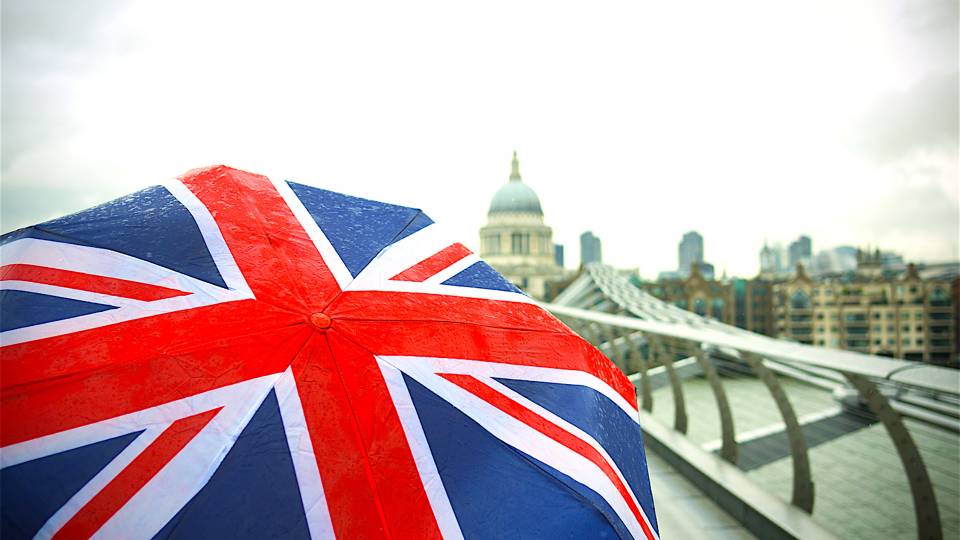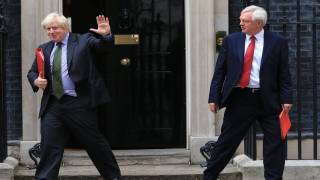Brexit unlikely before 2019
When Theresa May launched her campaign in Birmingham last month (11 July) to become the next leader of the UK's Conservative party, she made the now famous promise that "Brexit means Brexit", adding that she would "make a success of it".
However, she never said when it would actually happen.
UK ministers have now privately warned senior figures in the City of London that Britain could remain in the EU until late 2019, UK weekly The Sunday Times and other British media reported over the weekend.
The government was set to trigger article 50 - which starts the formal process for quitting the Brussels club - at the beginning of 2017, the media reports said. This would mean leaving the EU could follow early 2019 after two years of negotiations.
May's government is facing several difficulties with the Brexit process.
One problem is that two leading EU countries, France and Germany, will soon focus on internal affairs due to elections making them unlikely to strike major international agreements for some time.
The next French presidential election is to be held in April and May 2017. The latest date for the German federal election is 22 October next year.
New teams take time
Another problem is the hiring of experts to lead the negotiations with Brussels.
David Davis, the Brexit secretary, and Liam Fox, the international trade secretary, are making slow progress on assembling their new teams.
Together with Boris Johnson, former mayor of London, the trio has been tasked by May to lead the Brexit negotiations with Brussels.
The three ministers all campaigned to leave the EU ahead of the 23 June referendum, when some 52 percent voted for a Brexit.
But Davis has so far hired fewer than half of his 250 required staff members. Fox is putting together a team of 1,000 people, but has so fare hired just 100, according to UK media.
The prospect of a Brexit delay has prompted some hardcore anti-EU campaigners to rattle sabres.
Eurosceptic Tories, who fear that the UK is heading for Brexit Lite, plan to create at least two cross-party groups to pressure May into announcing a strict timetable for leaving the EU.
Nigel Farage, the former leader of the anti-EU Ukip party, reportedly warned that failure to deliver on June’s EU referendum and curb immigration could lead to mass demonstrations on the streets.
Tusk on tour
EU council president Donald Tusk announced last week that he would hold talks with all EU leaders, including May, ahead of an informal Bratislava Brexit summit on 16 September.
EU member states - apart from Britain - will discuss in Bratislava how to respond to the Brexit vote in terms of EU reforms.
A Tusk working dinner with German chancellor Angela Merkel is planned already on 18 August.
Meanwhile, the countries closest to the UK are thinking about the eventual consequences of Brexit for their own interests.
"Our objective is to make the best possible deal for Denmark," Danish foreign minister Kristian Jensen told Bloomberg when asked about future Brexit talks.
"We have about six months to get our wish list ready," said Jensen, who is expecting negotiations on Britain’s departure to start as soon as the end of this year.
"We need to find out where we should be aggressive in securing our interests and where we need to ensure that Britain doesn’t get any advantages that the rest of us aren’t getting."
Last week, Norway’s European affairs minister Elisabeth Vik Aspirer also said UK attempts to eventually rejoin the European Free Trade Association (EFTA) may not be in Norway's interest.
“It’s not certain that it would be a good idea to let a big country into this organisation. It would shift the balance, which is not necessarily in Norway’s interests," she told Norwegian newspaper Aftenposten.
Iceland is taking a more welcoming approach in terms of British EFTA membership.
"When more countries join your club that usually means more influence on the international stage," Iceland's foreign minister Lilja Alfredsdottir said in an interview with the Norwegian online business newspaper E24 Naeringsliv.
It is not yet clear if the UK - which was an EFTA member till 1973 - wants to rejoin the club, which also includes Switzerland.
EFTA has agreed trade deals with 38 countries around the world.
Other headaches
The Brexit process is also haunted by the spectre of British divisions after Scotland, Northern Ireland and London voted in favour of remaining in the EU.
England and Wales could do a “reverse Greenland” by seeking a territorial exemption from the continuing UK member state, allowing Scotland, Northern Ireland and Gibraltar to retain their EU membership, Denmark-based academic Ulrik Pram Gad suggested in an article for the London School of Economics.
The idea was described as “interesting” by Scotland’s first minister Nicola Sturgeon, reports the Scotsman daily.
Following a referendum Greenland withdrew from the EEC in 1985 while the rest of the Kingdom of Denmark remained a member.
In Northern Ireland private campaigner Raymond McCord last week (4 August) launched the first legal challenge in Northern Ireland to the UK leaving the European Union.
His lawyers claim it would be unlawful to trigger article 50 without parliament voting on the move.






















